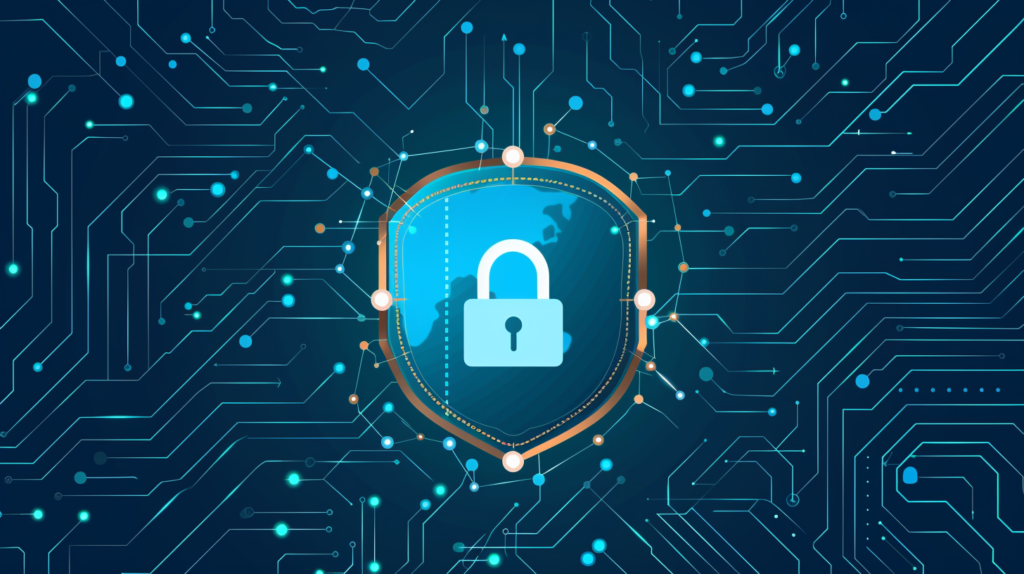VPN Adoption – 2024 Overview
There’s no denying that VPNs have increased in popularity over the past several years which coincides with a gradual increase in cyberattacks. Most of these are ransomware breaches which have spiked in frequency during 2023.
But are VPNs a must or are you fine with your standard antivirus?
Both VPN programs and anti-virus software have the same job: protect the individual’s assets. The difference lies in the method. VPNs ensure anonymity by assigning an anonymous IP address to the user. This protects against identity theft and hacks and increases privacy.
Anti-viruses come into effect in cases of direct attacks, when the VPN cloak has already failed.
Highlights
- The leading VPN platforms are Cisco AnyConnect with 28.87% shares and Cisco VPN with 24.87% shares, followed by Juniper VPN (10.21%), Citrix Gateway (7.79%), and OpenVPN (7.16%)
- Approximately 80% of private individuals use VPNs for their increased security, 33% use them to mask their internet activity, and only 6% use them to avoid ads
- Approximately 50% of private individuals opt for the free versions over the paid ones, despite the former being far less reliable
- Up to 31% of all internet users rely on VPNs to protect their privacy
- Based on the upwards trend, it is projected that the VPN market (private individuals + businesses) will exceed $101 billion by 2030
- Qatar is the country with the most unique VPN downloads in 2023 (70%), followed by United Arab Emirates (62%) and Singapore (54%)
- The top countries with the lowest adoption rate in 2023 have been South Africa (1.44%), Japan (1.83%), and Kenya (1.92%)
- Several countries regulate VPNs heavily, such as Egypt, Turkey, China, India, and Russia (which also blacklists certain VPN providers)
- VPNs are illegal in 4 countries: North Korea, Iraq, Turkmenistan, and Belarus
- Consumer-level VPNs can cost over $156 per year
- According to the data, 47% of VPN users opt for the free version, despite being less safe
- Over 25 million VPN users have had their data exposed in 2022, all of them using the free versions; 7 free VPN software were responsible for 1.2 TB of data leaking on the Dark Web
The VPN adoption rate is slowly increasing worldwide, with private individuals and businesses having different reasons for it. The overwhelming majority opt for the benefit of increased security, though.

Here is the general adoption rate per country in 2024, according to a Statista report:
| Country | Adoption Rate |
| Russia | 36.2% |
| United Arab Emirates | 36.1% |
| Indonesia | 32.5% |
| Turkey | 32.4% |
| India | 28.7% |
| Saudi Arabia | 28.7% |
| Singapore | 28.6% |
| Vietnam | 27.8% |
| Malaysia | 27.2% |
| Switzerland | 26.6% |
| United States | 26.1% |
| Australia | 25.8% |
| United Kingdom | 25.1% |
| Hong Kong | 25% |
| Portugal | 24.7% |
| Germany | 23.8% |
| Czechia | 23.4% |
| Canada | 23.1% |
| Austria | 22.9% |
| Denmark | 22.5% |
| Netherlands | 22.3% |
| Colombia | 22.2% |
| Ireland | 21.7% |
| Norway | 21.7% |
| Kenya | 21.2% |
| Spain | 20.8% |
| New Zealand | 20.7% |
| China | 20.4% |
| Nigeria | 20.4% |
| Sweden | 20.3% |
| Italy | 20.1% |
| South Africa | 20.1% |
| France | 20% |
| Taiwan | 19.8% |
| Philippines | 19.7% |
| Poland | 19.7% |
| Thailand | 19.7% |
| Egypt | 19.4% |
| Mexico | 18.9% |
| Greece | 18.3% |
| Belgium | 18.2% |
| Hungary | 18% |
| Chile | 17.9% |
| Brazil | 17.6% |
| Bulgaria | 17.1% |
| Croatia | 17% |
| Argentina | 15.8% |
| Morocco | 15.4% |
| Romania | 15.4% |
| Israel | 15.2% |
| South Korea | 14.7% |
| Ghana | 11.3% |
| Japan | 10.9% |
| Worldwide | 23.2% |
Despite the visibly increased adoption rate, studies show that Gen Z is a lot less concerned about their private security compared to the rest of the population. This disparity is even more intriguing, seeing how Gen Z uses the internet a lot more.
An interesting trend was observed in Russia, with more people downloading VPN software throughout 2022 and 2023 than ever. A study published by CompariTech concluded that Russians have been responsible for little over 33 million VPN downloads.
This makes up for 10% of the annual total. The reason behind the explosive increase? The Ruso-Ukrainian war, which started in February 2022, saw a drastic increase in cyberattacks and ransomware breaches.
The same study recorded an increase of up to 1,906% in Russia-related VPN downloads. This boost was linked to several key moments throughout 2022, the first being the actual start of the war.
Another visible spike was observed in the period September-December of the same year. This event was linked to the general civilian mobilization announced by the Russian government.
Most Popular VPNs in the US in 2024
VPN awareness is just above average among the US population. Approximately 68% of the Americans know what a VPN is, but only 31% of them use it, based on 2023 data. This is a considerable increase compared to 2022, when the usage rate was down to 24%.

But what VPN services do Americans use? Let’s look at the data:
- NordVPN – 27%
- Proton VPN – 13%
- Google One VPN – 9%
- ExpressVPN – 8%
- Private Internet Access – 7%
- Brave VPN – 7%
- Norton Secure VPN – 6%
- Mozilla VPN – 5%
- Surfshark VPN – 5%
- CyberGhost – 4%
US’s stats are similar to those in UK (71% know of VPNs, 32% use them), Canada (70% know of VPNs, 29% use them) and Australia (68% know of VPNs, 32% use them.) It’s important to note that the number of VPN downloads doesn’t necessarily translate to VPN uses.
Why Is VPN Adoption Increasing in 2024?
A recent study, published by Forbes Magazine, highlighted that private individuals are using VPNs more than businesses in 2024. There are several reasons for that, so let’s look at the numbers.

Private Use of VPNs:
| Usage Reasons | Usage Numbers |
| Increased cybersecurity | 80% |
| Protect personal data | 66% |
| Access public Wi-Fi networks | 50% |
| Mask internet activities | 33% |
| Two-factor authentication systems | 30% |
| Improved encryption | 18% |
| Job-related requirements | 16% |
| Avoid website and video ads | 6% |
| Protect the employer’s internal data | 6% |
When it comes to businesses, VPNs are used for several reasons, such as increased cybersecurity and to prevent data leaks. It’s important to note that businesses are targeted by ransomware actors far more often than private parties.
While VPNs alone can’t prevent that, they are useful tools when used in conjunction with other defensive layers.
Paid vs. Free VPNs – What’s The Difference?
As studies show, only around 26% of total private VPN users actually pay for the software. 24% use VPNs paid for by their employers, while 47% use the free versions. But is there a difference between a paid and a free VPN? Certainly. There are several.

Free VPNs
NordVPN put it simply by writing in an article “The only strength of a free VPN is that it’s free.” The thing that makes the difference between paid and free VPN services is the remuneration. Paid VPNs get their money from the subscription package.
What about the free ones? Since the free ones don’t have a subscription model or paid services to fall back on, the funding needs to come elsewhere. So, they sell their users’ data to advertising companies and other interested parties.
While this may not necessarily seem like a big deal, it actually is. Especially when considering the chain of events that will unfold:
- The user opts for a free VPN software
- The VPN sells the user’s data to third-party companies
- These store the user’s data on their servers to send them personalized ads and emails regularly
- They also share or sell the data to other entities for similar purposes
- With the user’s data now found on several different databases, it’s only a matter of time until one is breached
- This causes the data to reach into the hands of cybercriminal actors
If you think this is an unplausible scenario, it’s not. It’s actually what leads to many cybersecurity breaches seemingly coming out of nowhere. And it all leads back to that one time when the victim decided to save money and opt for a free VPN.
The problem that transpires here is simple: free VPNs violate the user’s privacy. Which is the exact reason they’re using the VPN in the first place. And this isn’t the only problem.
Free VPNs also have lower performance, compared to paid ones, for obvious reasons. This usually causes significantly poorer internet speed, which will affect any online activity, especially streaming and gaming.
Then there’s the problem of the poor security and inadequate infrastructure, leading to weak encryption. Which, again, contradicts the very reason the user is using the VPN in the first place.
Paid VPNs
By comparison, paid VPNs come with a variety of benefits, such as:
- DNS and IP leak protection
- Top-notch encryption which scrambles your data, making it unreadable while in transit for complete anonymity
- Advanced threat protection that blocks third-party intrusion attempts, malicious ads, compromised files, and malware-ridden websites
- The possibility to bypass heavy restrictions on a global scale
- Accepting multiple connections at the same time
- Live notifications to inform you of any potential data leak
- Cancel forced re-directions to infected websites
- Unlimited bandwidth
- 24/7 customer support with prompt intervention and solutions
Given that the maximum cost of a paid VPN revolves around $13 per month (average is $6.50), the money is definitely worth it. Plus, taking on a yearly subscription will cut the costs drastically as well, depending on the VPN service you’re using.
VPN Cybersecurity Achievements and Breaches
One of the major flaws of VPNs is that they instill a false sense of security. That’s because, although VPNs are a welcomed addition to anyone’s cybersecurity toolbox, they’re not an exhaustive measure on their own. VPNs can still fail.

That’s because these software programs are meant to protect anonymity and reduce the risk of data leak and cyberattacks. But they’re not infallible and, ideally, should be used in conjunction with other defense methods.
These problems are exacerbated for free VPNs for all the reasons we’ve already discussed. The statistics are worrying:
- 60% of VPN users have experienced at least one cyberattack of any type while using the service
- These data breaches have amounted to $6.9 billion in losses during that time
- Up to 33% of VPN users have experienced at least one ransomware attack while using the service
- 62% of VPN users are reportedly unsatisfied with their services, slow internet connection being the number one complaint
While these issues are typically linked to free VPNs, paid versions have their own limitations too. However, this is to be expected, because these limitations are not bugs, but features. VPNs are not meant to function as standalone cybersecurity tools.
Why Some People Refuse to Use VPNs

Not everybody is excited about VPNs. Here are some of the reasons why people refuse to use such a service, be it free or paid:
- I don’t need one (52%)
- Too expensive (27%)
- Too difficult to set up (20%)
- Don’t trust VPN companies with their data (17%)
According to 2024 statistics, only 28% of desktop and laptop users don’t use a VPN, along with 31% mobile users, 48% iOS users, and 63% of Android users. These numbers continue to drop, given that VPN adoption continues to increase globally each year.
Should You Use a VPN?
The obvious answer is yes, but this depends entirely on your online activity and goals. VPNs are generally great assets to have for extra privacy, circumventing inaccessible content, and improved security. But this only applies to the paid versions.
As it stands, free VPNs are liabilities and are likely to cause more problems than they can solve. The most recent study showed that 31% of all internet users currently use some type of VPN.
This may not sound much, but analysts suggest that these numbers will increase dramatically over the following 6-8 years. While VPN programs are by no means perfect, it’s also undeniable that they do play a role in mitigating malware and data exposure risks.
Sources
- https://nordvpn.com/blog/free-vpn-vs-paid-vpn/#:~:text=The%20only%20strength%20of%20a,%2C%20and%2024%2F7%20support.
- https://www.forbes.com/advisor/business/vpn-statistics/#:~:text=on%20free%20VPNs-,Why%20Do%20People%20Use%20VPNs%20in%202024%3F,protect%20that%20of%20their%20employers.
- https://www.statista.com/statistics/1382869/use-of-virtual-private-networks-vpn-by-country/
- https://www.statista.com/statistics/1449370/most-popular-vpns-us/
- https://explodingtopics.com/blog/vpn-stats
- https://www.comparitech.com/vpn/vpn-statistics/
- https://nordvpn.com/blog/nordvpn-usage-survey/
- https://www.forbes.com/advisor/business/vpn-statistics/#sources_section
- https://www.statista.com/statistics/1258505/virtual-private-network-market-share-technology-worldwide/

